
José Dirceu, in full José Dirceu de Oliveira e Silva, is a former Brazilian politician. His political rights were suspended by the Brazilian House of Representatives and he was found guilty by the Brazilian Supreme Court of active corruption and conspiracy in two separate lawsuits.

Silvio José Pereira is a sociologist and co-founder of the Brazilian Workers Party. Born in Osasco, São Paulo, he was a key figure in the mensalão scandal and resigned from his post of secretary general of the party on June 4, 2005.
Odebrecht S.A., officially known as Novonor, is a Brazilian conglomerate, headquartered in Salvador, Bahia, Brazil, consisting of diversified businesses in the fields of engineering, construction, chemicals and petrochemicals. The company was founded in 1944 in Salvador by Norberto Odebrecht, and is active in the Americas, the Caribbean, Africa, Europe and the Middle East. Its leading company is Norberto Odebrecht Construtora.
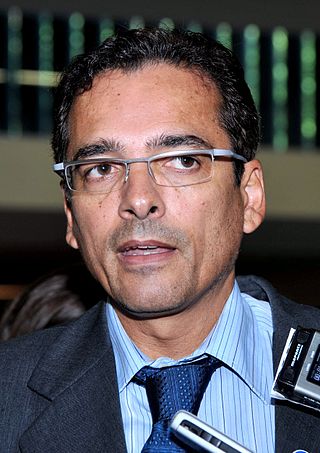
Protógenes Pinheiro Queiroz is a Brazilian former Federal Police officer, who has led investigations in some of the country's most high-profile corruption cases. Queiroz was responsible for investigations leading to imprisonment of the former mayor of São Paulo, Paulo Maluf. He was a key figure in two investigations, in 2005 and 2007, into corruption scandals in Brazilian football, the latter against Boris Berezovsky's MSI group for money laundering in Corinthians. From 2004 to July 2008 Quieroz led Operation Satiagraha, a major operation into misuse of public funds, money laundering and corruption, leading to the arrest of the banker Daniel Dantas and several other prominent figures, including Celso Pitta, another former mayor of São Paulo.
José Mohamed Janene was a Brazilian businessman, cowman and politician. He had many farms and ran many companies, mostly in Londrina, where he lived. He became notable via politics and by being involved in the Mensalão scandal.

Corruption in Brazil exists on all levels of society from the top echelons of political power to the smallest municipalities. Operation Car Wash showed central government members using the prerogatives of their public office for rent-seeking activities, ranging from political support to siphoning funds from state-owned corporation for personal gain. Specifically, mensalão typically referred to the practice of transferring taxpayer funds as monthly allowances to members of congress from other political parties in consideration for their support and votes in congress. Politicians used the state-owned and state-run oil company Petrobras to raise hundreds of millions of reais for political campaigns and personal enrichment.
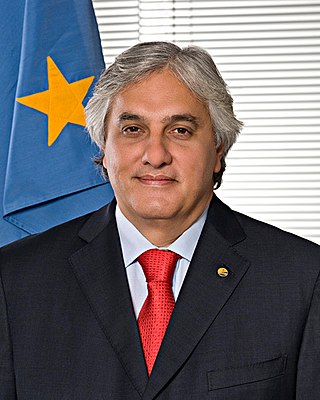
Delcídio do Amaral Gomez is a Brazilian politician. He worked at Shell and was nominated to Petrobras's Internacional Directory by president Fernando Henrique Cardoso where he worked until 2001 when he left Petrobras and start his relation with the Workers'Party. Before his relation with Workers' party, Delcidio indicated a new director to Fernando Henrique Cardoso, Nestor Cervero. He represented Mato Grosso do Sul in the Federal Senate from 2003 to 2016 and before he was removed from office, he was the high-representative of the Workers' Party in the Brazilian Senate. He was the speaker of his party in the Senate and the head of the Senate's economic affairs committee. Amaral was arrested in November 2015 for allegedly taking kickbacks from Petrobras. A Supreme Court judge, Teori Zavascki, said he authorised the arrest after seeing evidence that Amaral had planned the flight of Petrobras's former international director, Nestor Cerveró, in return for his silence. Ceveró was convicted of money laundering and sentenced to five years in prison.
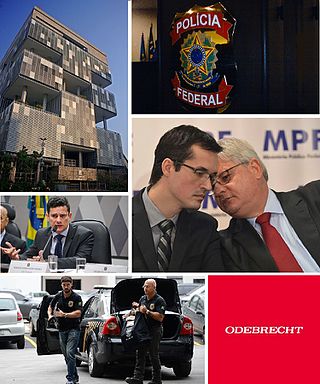
Operation Car Wash was a criminal investigation by the Federal Police of Brazil's Curitiba branch. It began in March 2014 and was initially headed by investigative judge Sérgio Moro, and in 2019 by Judge Luiz Antônio Bonat. It has resulted in more than a thousand warrants of various types. According to the Operation Car Wash task force, investigations implicate administrative members of the state-owned oil company Petrobras, politicians from Brazil's largest parties, presidents of the Chamber of Deputies and the Federal Senate, state governors, and businessmen from large Brazilian companies. The Federal Police consider it the largest corruption investigation in the country's history. The taskforce was officially disbanded on 1 February 2021.

In 2015 and 2016, a series of protests in Brazil denounced corruption and the government of President Dilma Rousseff, triggered by revelations that numerous politicians allegedly accepted bribes connected to contracts at state-owned energy company Petrobras between 2003 and 2010 and connected to the Workers' Party, while Rousseff chaired the company's board of directors. The first protests on 15 March 2015 numbered between one and nearly three million protesters against the scandal and the country's poor economic situation. In response, the government introduced anti-corruption legislation. A second day of major protesting occurred 12 April, with turnout, according to GloboNews, ranging from 696,000 to 1,500,000. On 16 August, protests took place in 200 cities in all 26 states of Brazil. Following allegations that Rousseff's predecessor, Luiz Inácio Lula da Silva, participated in money laundering and a prosecutor ordered his arrest, record numbers of Brazilians protested against the Rousseff government on 13 March 2016, with nearly 7 million citizens demonstrating.
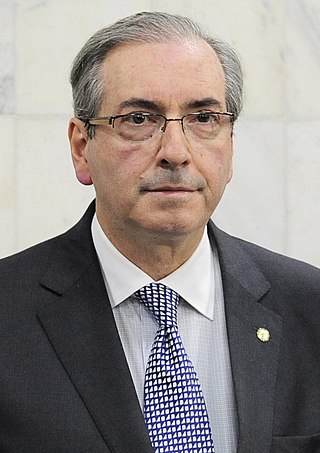
Eduardo Cosentino da Cunha, is a Brazilian politician and radio host, born in Rio de Janeiro. He was President of the Chamber of Deputies of Brazil from February 2015 until May 5, 2016, when he was removed from the position by the Supreme Court. BBC News labeled him the "nemesis" of Brazilian President Dilma Rousseff. He was indicted in the scandal known as Operation Car Wash involving the state-owned oil company Petrobras and other corporations. Cunha was suspended as speaker of the Chamber of Deputies by the Supreme Court on the request of the Prosecutor-General due to allegations that he had attempted to intimidate members of Congress and obstructed investigations into his alleged bribe-taking. Cunha resigned from his position later, on July 7, 2016, after a disciplinary process in Congress that had lasted nine months, making it the longest in Brazilian Congressional history. A series of legal manoeuvres had stalled the process and kept Cunha in charge of the Chamber of Deputies. While the Chamber's Commission of Ethics was divided on the issue until June, the Chamber of Deputies plenary, on September 12, 2016, voted 450–10 in favour of stripping Cunha of his position as federal deputy for breaching parliamentary decorum by lying about secret offshore bank accounts.

Aldemir Bendine was the chief executive officer (CEO) of Petrobras.

João Vaccari Neto is a Brazilian banker and labor union leader. He is the Secretary of Finance and Planning of the Workers Party (PT) and was president of the cooperative known as BANCOOP. He is currently incarcerated in Pinhais near Curitiba.

Sergio Fernando Moro is a Brazilian jurist, former federal judge, college professor and politician. He was elected to be a member of the Federal Senate for Paraná in October 2022. In 2015 he gained national attention as one of the lead judges in Operation Car Wash, a criminal investigation into a high-profile corruption and bribery scandal involving government officials and business executives. Moro was also Minister of Justice and Public Security under the presidency of Jair Bolsonaro from 2019 to 2020.
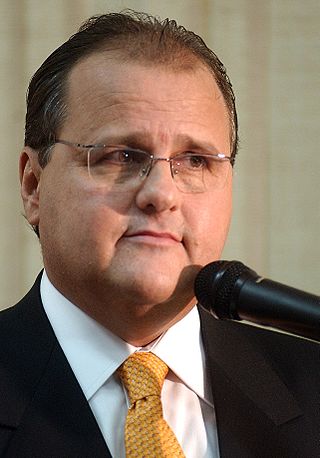
Geddel Vieira Lima is a Brazilian politician who served in the Cabinet of Brazil under President Michel Temer until his resignation on 25 November 2016, amid accusations that he and the President had pressured Minister of Culture Marcelo Calero to approve a real estate project to build a 30-floor apartment building in a historic district of Ladeira da Barra.

A long series of criminal investigations have occurred in Brazil associated with Operation Car Wash, since the first one began in March 2014. These investigations are considered offshoots of the original phased investigations.

A long series of criminal investigations have occurred in Brazil associated with Operation Car Wash. The first investigation was launched in March 2014, and is now known as phase 1 of the investigation, with subsequent inquiries numbered sequentially and having code names such as phase 2, phase 3, and so on. By February 2021, there were 80 announced phases of Operation Car Wash.

The Brazilian Anti-Corruption Act officially "Law No. 12,846" and commonly known as the Clean Company Act is a Brazilian law enacted in 2014 targeting corrupt practices among business entities doing business in Brazil. It defines civil and administrative penalties, as well as the possibility of reductions in penalties for cooperation with law enforcement under a written leniency agreement signed and agreed to between the business and the government.
This glossary contains Brazilian terms related to criminal or corruption investigations, and supporting concepts from politics, the law, government, criminology, and law enforcement.
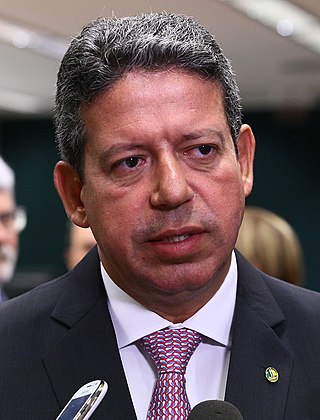
Arthur César Pereira de Lira is a Brazilian lawyer, farmer, entrepreneur and politician. A member of Progressistas (PP), he is a federal deputy for Alagoas, and President of the Chamber of Deputies since February 2021.















